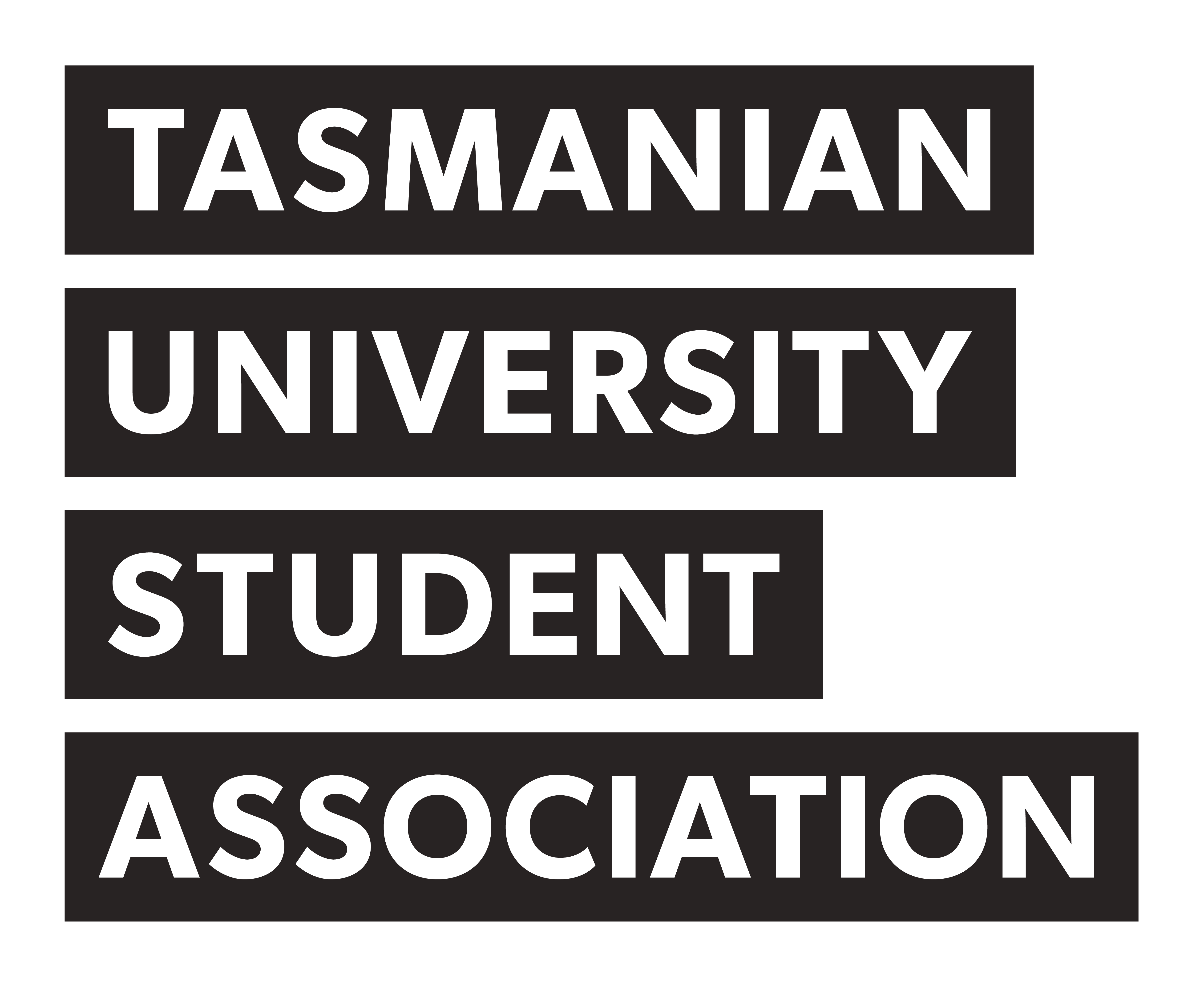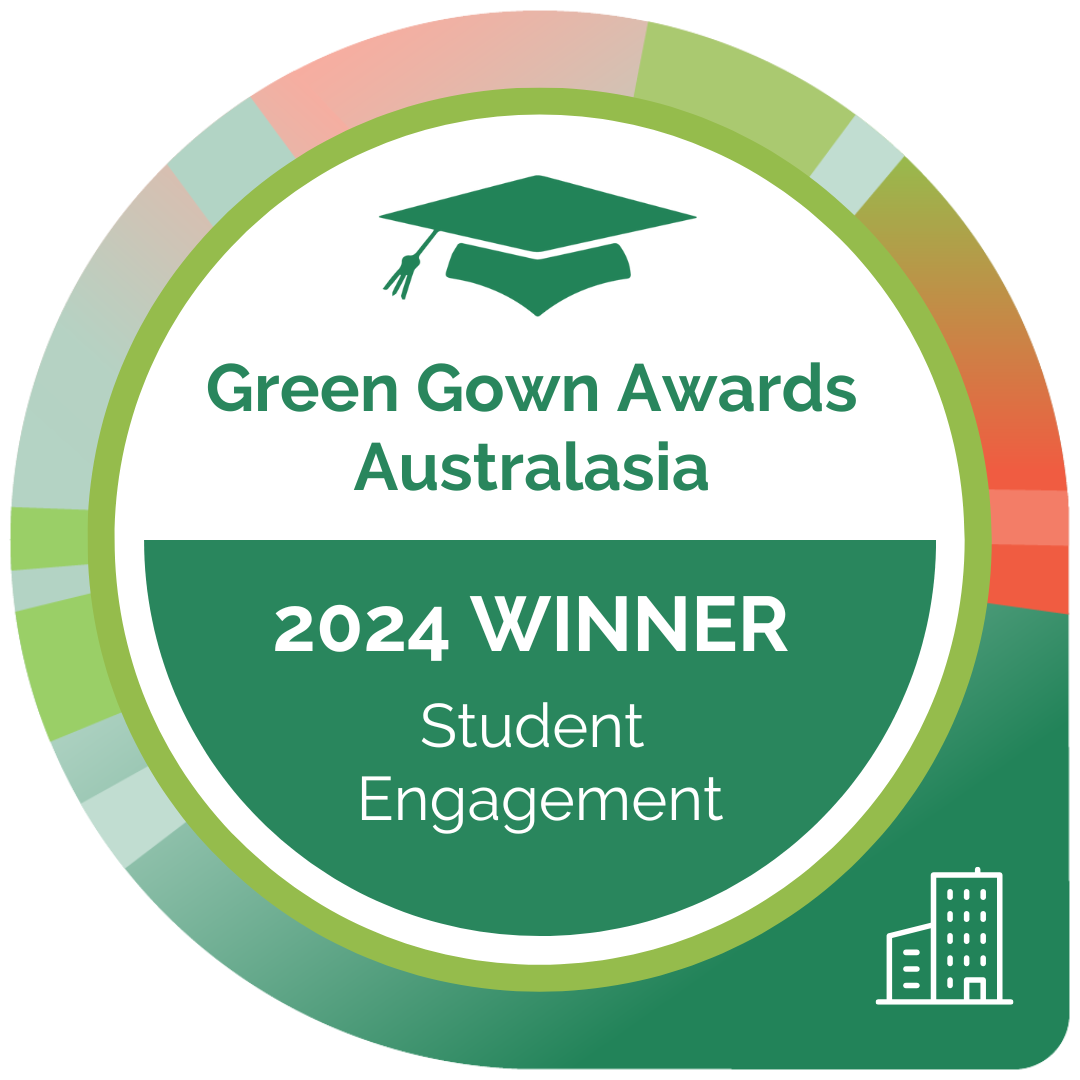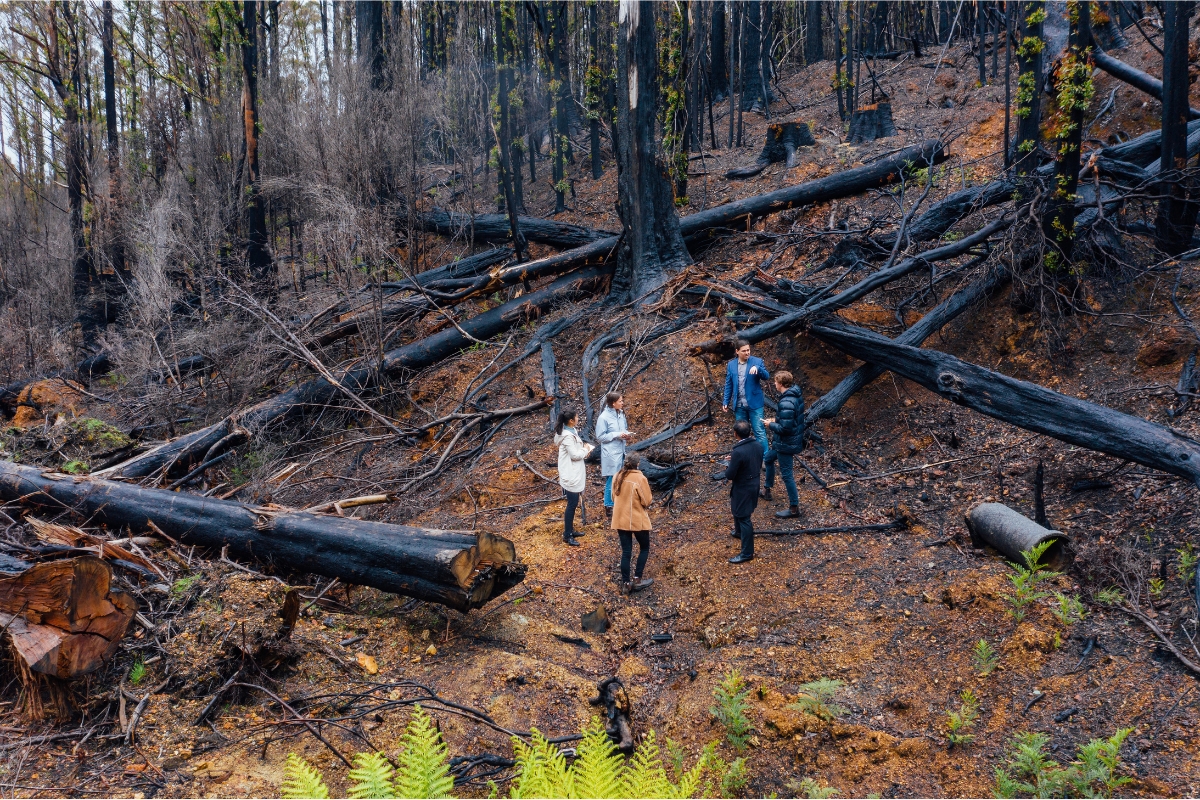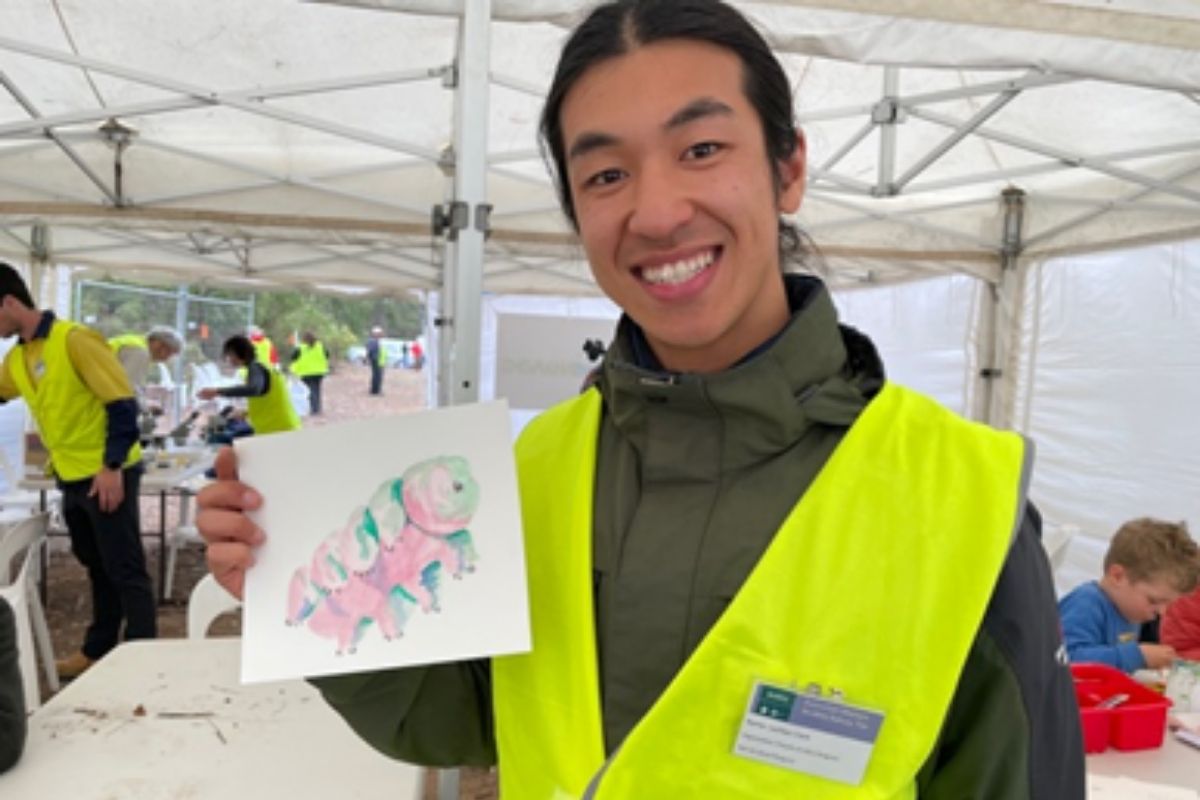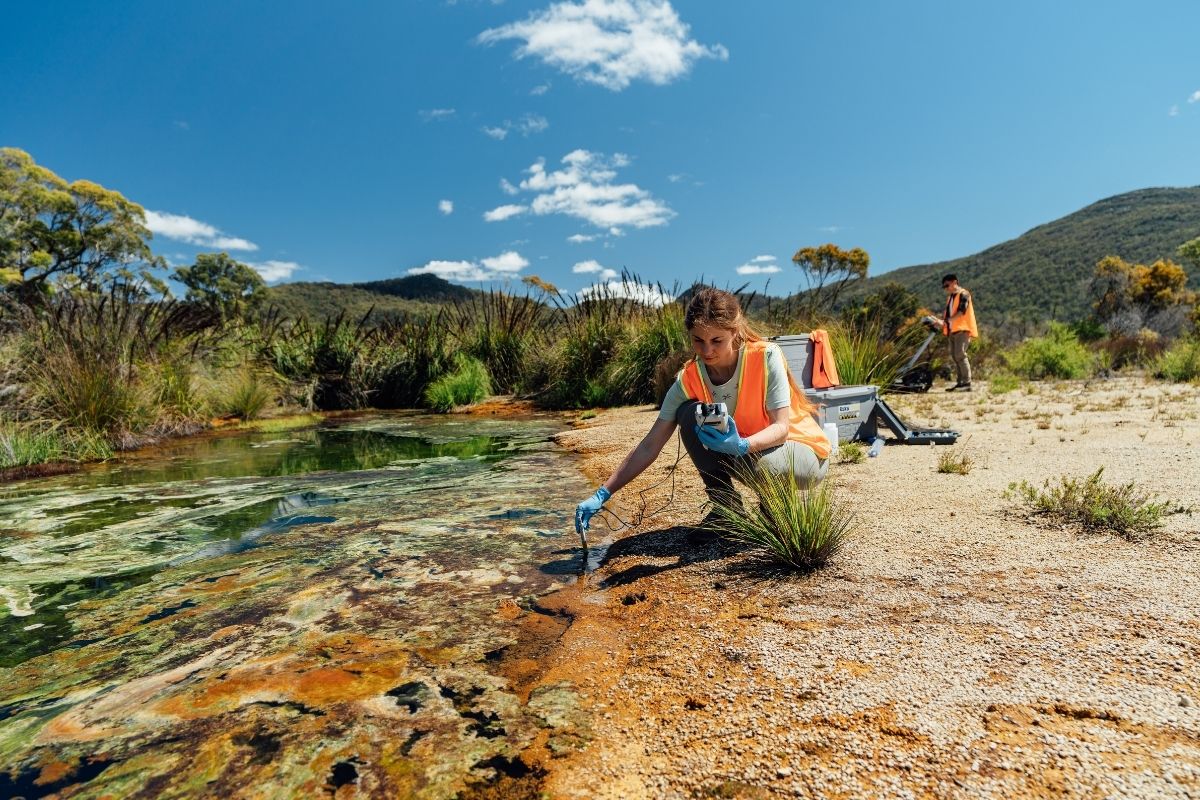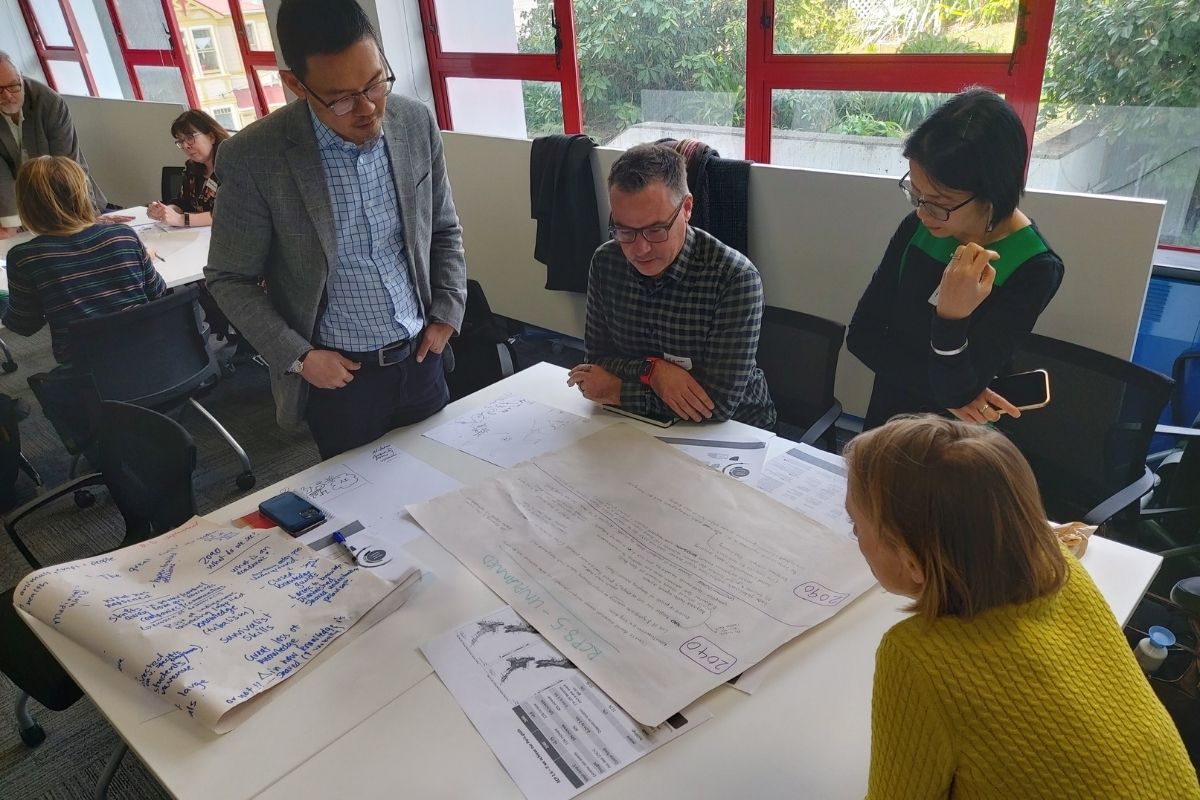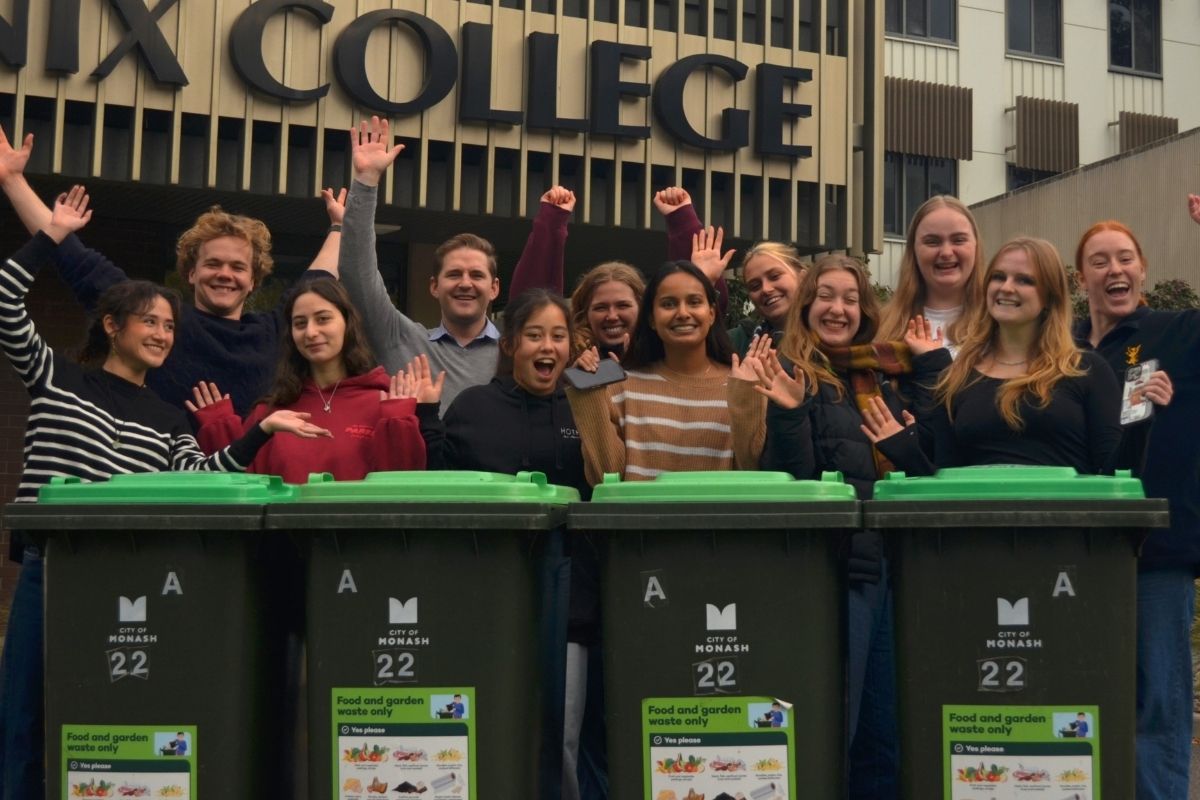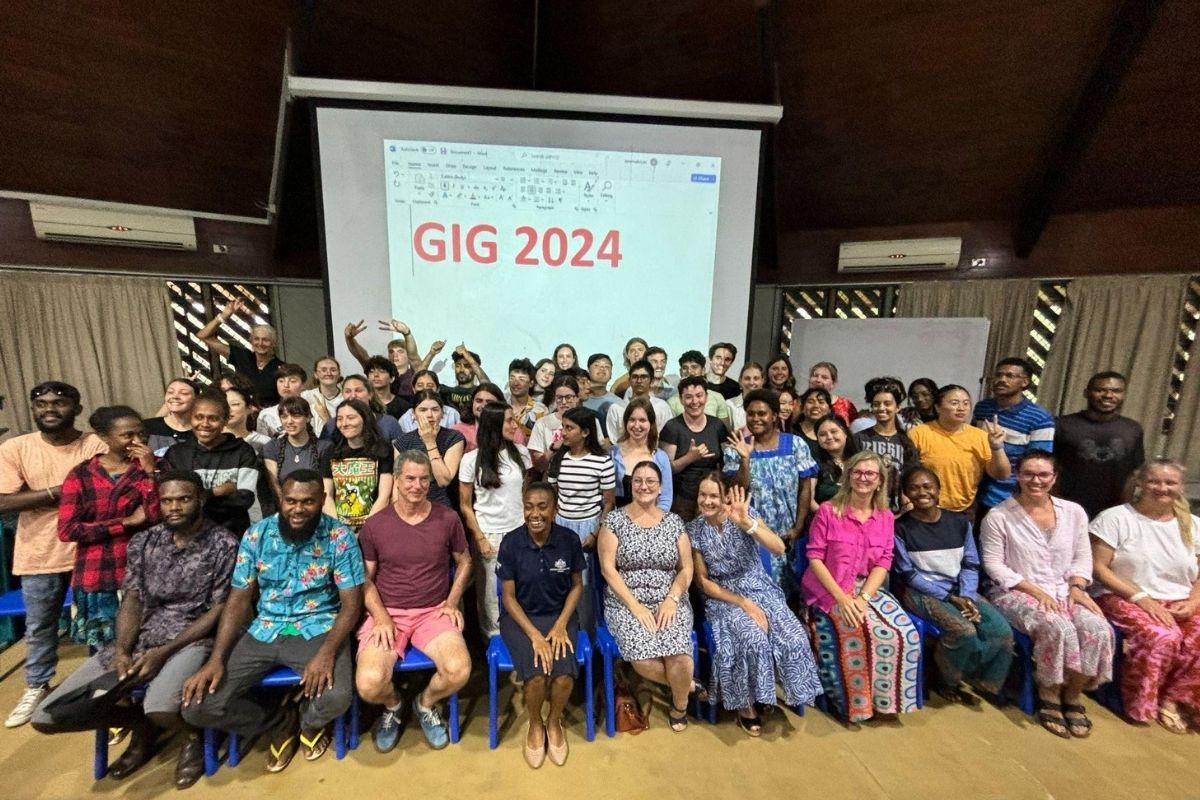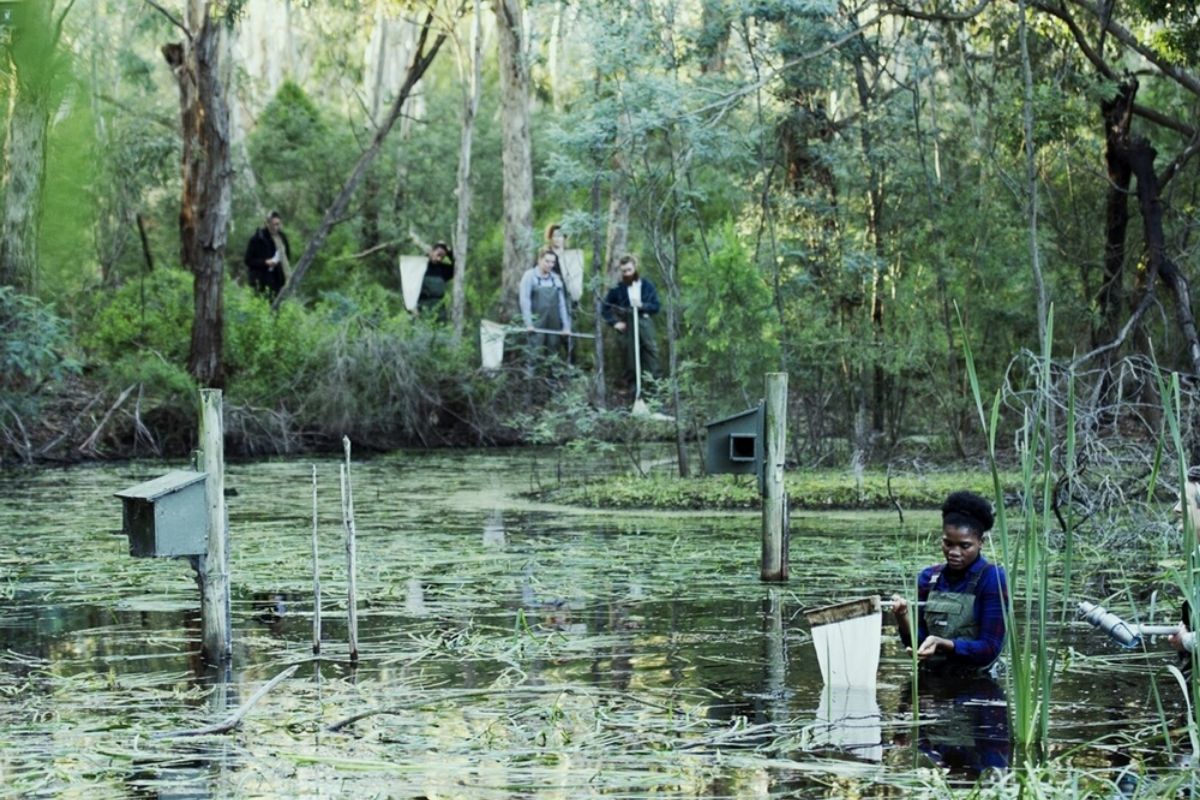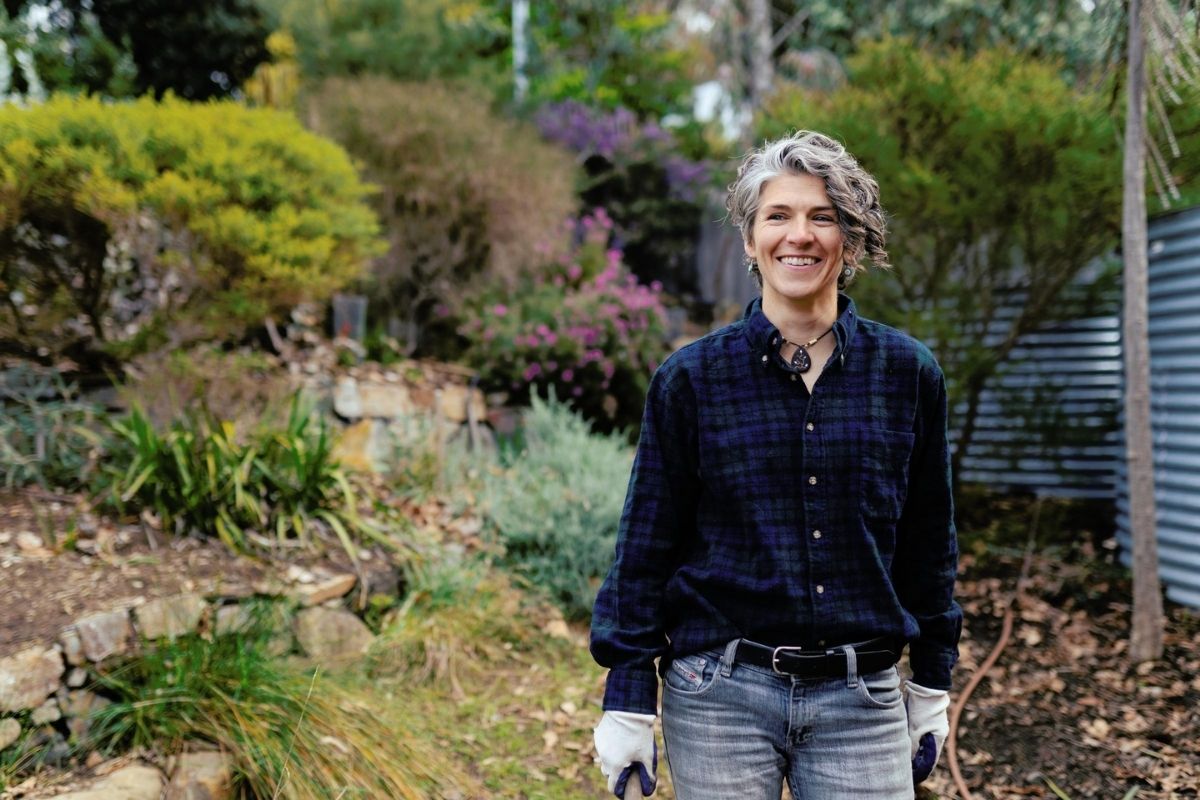Student Engagement/Winners category
The University of Tasmania (UTAS) has introduced the “Sustainable Food Solutions” initiative, a multifaceted program designed to address food insecurity among students while promoting sustainable food practices. This initiative, a key element of UTAS’ Healthy Sustainable and Equitable Food Strategic Plan 2023-2028, encompasses three primary components:
- Edible Campus involves students in the process of growing, harvesting, and distributing fresh produce.
- The Student Foodies Program run by Health & Nutrition Science students, teaching food literacy and healthy eating through cooking and sharing low-cost, nutritious meals.
- Tasmanian University Students Association (TUSA), operates the Food Hub and Food Education Program providing free food and cooking classes to students in need.
Together, these programs engage students as both implementers and beneficiaries, aiming to reduce hunger, enhance food literacy, and foster a more sustainable campus food system.
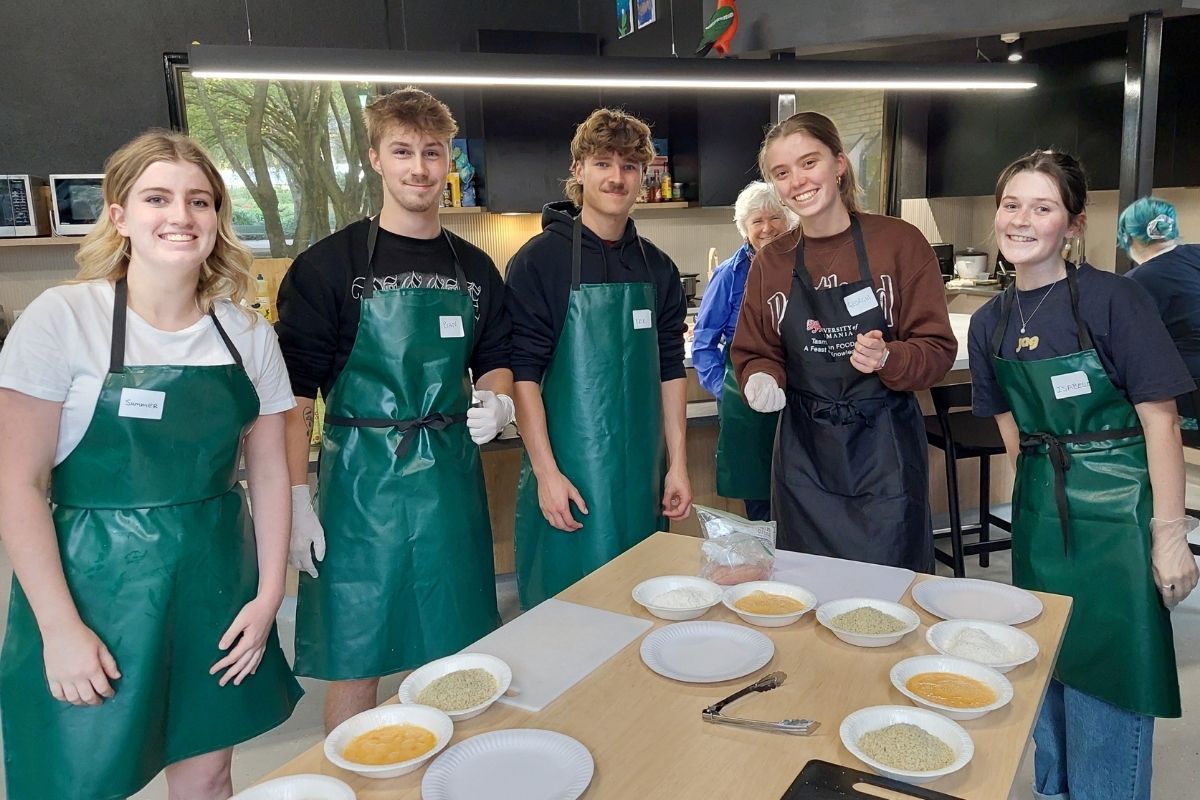
Environmental and Social Benefits
- Food Security: The initiative directly addresses the pressing issue of food insecurity, with over 50% of UTAS students experiencing some level of food insecurity. By providing access to fresh produce, nutritious meals, and food education, Sustainable Food Solutions supports student health, well-being, and academic performance.
- Sustainable Practices: The initiative promotes organic gardening, composting, and the use of locally sourced produce, contributing to reduced food miles, waste, and chemical usage. These practices align with the university’s sustainability goals and enhance the environmental footprint of campus food systems.
- Community Engagement: The initiative has created a vibrant community around food production and education. Programs like Edible Campus and the Food Hub not only provide essential resources but also foster social connections, improving mental health and building a strong sense of community among students.
Leadership and Engagement
- Student Leadership: Sustainable Food Solutions is distinctive for its student-driven approach. In particular, the Student Foodies Program is led by Bachelor of Nutrition Science students who design and deliver food literacy courses. Additionally, students play a critical role in the management and operation of the Food Hub, driving both its day-to-day activities and strategic direction.
- Collaborative Partnerships: The initiative is supported by partnerships with various stakeholders, including local government, community organisations, and internal university departments. These collaborations ensure the sustainability and scalability of the programs while maximising their impact.
- Active Participation: The initiative engages a wide range of participants, with hundreds of students involved in gardening, food preparation, and distribution activities. This high level of engagement is crucial to the success and sustainability of the programs.
Significance to the Sector
- Innovative Model: Sustainable Food Solutions represents an innovative approach to addressing food insecurity within a university setting. The integration of food production, education, and relief into a cohesive program sets a benchmark for other institutions aiming to address similar challenges.
- Scalability and Replicability: The initiative’s components, particularly Edible Campus and the Food Hub, are designed to be scalable and replicable across other universities. The project’s success at UTAS demonstrates its potential for broader application in diverse educational contexts.
- Alignment with SDGs: The initiative contributes to multiple United Nations Sustainable Development Goals (SDGs), including Goal 2 (Zero Hunger) and Goal 12 (Responsible Consumption and Production), positioning UTAS as a leader in sustainable development within the higher education sector.
Wider Societal Impact
- Skill Development: Students participating in Sustainable Food Solutions gain valuable skills in gardening, cooking, and food literacy, which they can apply in their personal and professional lives. These skills contribute to healthier, more sustainable communities beyond the university.
- Cultural Integration: The initiative incorporates Tasmanian Aboriginal cultural knowledge and practices, particularly through the planting of native food species. This cultural integration enriches the educational experience and fosters a deeper understanding of sustainability.
- Community Outreach: The public nature of the Inveresk Community Garden and the outreach activities associated with the initiative extend its impact beyond the university, engaging the broader community in sustainable practices and raising awareness about food security issues.
The “Sustainable Food Solutions” initiative at the University of Tasmania exemplifies a comprehensive, student-driven approach to addressing food insecurity while promoting sustainability. Through its innovative programs, strategic partnerships, and strong community engagement, the initiative not only supports the immediate needs of students but also contributes to the long-term goal of creating a more sustainable and equitable food system. This project serves as a model for other institutions, demonstrating the powerful impact of integrated, community-focused solutions on both a local and global scale.
Top 3 learnings
Supported by

Category finalists
Sustainability Institution of the Year/Winners
Sustainability Institution of the Year/Winners
Climate Action/Winners
Climate Action/Winners
Creating Impact/Winners
Creating Impact/Winners
Next Generation Learning & Skills/Winners
Next Generation Learning & Skills/Winners
Powerful Partnerships/Winners
Powerful Partnerships/Winners
Student Engagement
Student Engagement
Diversity, Equity and Inclusion/Winners
Diversity, Equity and Inclusion/Winners
Nature Positive/Winners
Nature Positive/Winners
Staff Champion/Winners
Staff Champion/Winners
Student Champion/Winners
Student Champion/Winners
Past winners
Benefitting Society/Winners
Benefitting Society/Winners
Diversity, Equity & Inclusion in Sustainability/Winners
Diversity, Equity & Inclusion in Sustainability/Winners
Climate Action/Winners
Climate Action/Winners
Sustainability Institution of the Year/Winners
Sustainability Institution of the Year/Winners
Creating Impact/Winners
Creating Impact/Winners
Creating Impact/Winners
Creating Impact/Winners
Top 3 learnings
Student Engagement/Winners category
The University of Tasmania (UTAS) has introduced the “Sustainable Food Solutions” initiative, a multifaceted program designed to address food insecurity among students while promoting sustainable food practices. This initiative, a key element of UTAS’ Healthy Sustainable and Equitable Food Strategic Plan 2023-2028, encompasses three primary components:
- Edible Campus involves students in the process of growing, harvesting, and distributing fresh produce.
- The Student Foodies Program run by Health & Nutrition Science students, teaching food literacy and healthy eating through cooking and sharing low-cost, nutritious meals.
- Tasmanian University Students Association (TUSA), operates the Food Hub and Food Education Program providing free food and cooking classes to students in need.
Together, these programs engage students as both implementers and beneficiaries, aiming to reduce hunger, enhance food literacy, and foster a more sustainable campus food system.

Environmental and Social Benefits
- Food Security: The initiative directly addresses the pressing issue of food insecurity, with over 50% of UTAS students experiencing some level of food insecurity. By providing access to fresh produce, nutritious meals, and food education, Sustainable Food Solutions supports student health, well-being, and academic performance.
- Sustainable Practices: The initiative promotes organic gardening, composting, and the use of locally sourced produce, contributing to reduced food miles, waste, and chemical usage. These practices align with the university’s sustainability goals and enhance the environmental footprint of campus food systems.
- Community Engagement: The initiative has created a vibrant community around food production and education. Programs like Edible Campus and the Food Hub not only provide essential resources but also foster social connections, improving mental health and building a strong sense of community among students.
Leadership and Engagement
- Student Leadership: Sustainable Food Solutions is distinctive for its student-driven approach. In particular, the Student Foodies Program is led by Bachelor of Nutrition Science students who design and deliver food literacy courses. Additionally, students play a critical role in the management and operation of the Food Hub, driving both its day-to-day activities and strategic direction.
- Collaborative Partnerships: The initiative is supported by partnerships with various stakeholders, including local government, community organisations, and internal university departments. These collaborations ensure the sustainability and scalability of the programs while maximising their impact.
- Active Participation: The initiative engages a wide range of participants, with hundreds of students involved in gardening, food preparation, and distribution activities. This high level of engagement is crucial to the success and sustainability of the programs.
Significance to the Sector
- Innovative Model: Sustainable Food Solutions represents an innovative approach to addressing food insecurity within a university setting. The integration of food production, education, and relief into a cohesive program sets a benchmark for other institutions aiming to address similar challenges.
- Scalability and Replicability: The initiative’s components, particularly Edible Campus and the Food Hub, are designed to be scalable and replicable across other universities. The project’s success at UTAS demonstrates its potential for broader application in diverse educational contexts.
- Alignment with SDGs: The initiative contributes to multiple United Nations Sustainable Development Goals (SDGs), including Goal 2 (Zero Hunger) and Goal 12 (Responsible Consumption and Production), positioning UTAS as a leader in sustainable development within the higher education sector.
Wider Societal Impact
- Skill Development: Students participating in Sustainable Food Solutions gain valuable skills in gardening, cooking, and food literacy, which they can apply in their personal and professional lives. These skills contribute to healthier, more sustainable communities beyond the university.
- Cultural Integration: The initiative incorporates Tasmanian Aboriginal cultural knowledge and practices, particularly through the planting of native food species. This cultural integration enriches the educational experience and fosters a deeper understanding of sustainability.
- Community Outreach: The public nature of the Inveresk Community Garden and the outreach activities associated with the initiative extend its impact beyond the university, engaging the broader community in sustainable practices and raising awareness about food security issues.
The “Sustainable Food Solutions” initiative at the University of Tasmania exemplifies a comprehensive, student-driven approach to addressing food insecurity while promoting sustainability. Through its innovative programs, strategic partnerships, and strong community engagement, the initiative not only supports the immediate needs of students but also contributes to the long-term goal of creating a more sustainable and equitable food system. This project serves as a model for other institutions, demonstrating the powerful impact of integrated, community-focused solutions on both a local and global scale.
Supported by

Related finalists
Sustainability Institution of the Year/Winners
Sustainability Institution of the Year/Winners
Climate Action/Winners
Climate Action/Winners
Creating Impact/Winners
Creating Impact/Winners
Next Generation Learning & Skills/Winners
Next Generation Learning & Skills/Winners
Powerful Partnerships/Winners
Powerful Partnerships/Winners
Student Engagement
Student Engagement
Diversity, Equity and Inclusion/Winners
Diversity, Equity and Inclusion/Winners
Nature Positive/Winners
Nature Positive/Winners
Staff Champion/Winners
Staff Champion/Winners
Student Champion/Winners
Student Champion/Winners
Other finalists
Climate Action

Driving Towards Tomorrow’s Campus with Vehicle-to-Grid EV Technology
As part of Flinders University’s drive to innovate and become a leader in climate action, the University launched its Vehicle-to-Grid (V2G) initiative. This involved installing and maintaining 20x V2G and smart chargers for its growing electric vehicle fleet. Leveraging 100% renewable energy generated by ENGIE’s Willogoleche Wind Farm and Flinders University’s solar power systems, this enables the storage of renewable energy in EV batteries to be discharged on campus during peak demand periods. Hence, allows for these EV fleets to operate as a Virtual Power Plant (VPP) to deliver peak demand management and optimization of behind-the-meter generation.
Overall, this initiative demonstrates the reliability and scalability of bi-directional and uni-directional smart-charging systems for EVs in reducing GHG emissions while facilitating teaching, research, and innovation opportunities. Moreover, it exemplifies a sustainable and innovative solution to scale energy storage technology and increase renewables.
Sustainability Champion – Staff/Winners

Brandan Espe
Environmental Officer / Acting Grounds Supervisor
Brandan has brought over 50 federally listed Endangered species of plant into the James Cook University living collection, many of which have never been cultivated and are found in no other collection in the world.
Of these, over half have been sustainably wild collected, inclusive of field and clone data, so they can be used for ongoing conservation, research and teaching, the remaining being sourced from private and partner organisations through favours of service or trades.
He personally funded the project from 2019-2022, until funding was awarded for the program due to its success, with the program now being engrained into the Universities landscapes for ongoing management should he leave JCU, creating a threatened species legacy collection.
The program has now expanded beyond this, with an additional 48 species now funded for further addition, some of which are only known from less than 5 sightings in history.
Student Engagement

Sustainability Leaders creating real impact!
La Trobe created a unique Sustainability Leaders volunteering program to increase engagement with students on campus and empower them to act against waste and promote sustainability. It included the following initiatives:
- Promoting the reusable crockery implementation,
- Increasing knowledge action of other students on campus to diversion comingled recycling and organic waste from landfill.
- Focus on waste audits and data,
- Improved signage through new waste posters for students living on campus.
- Collaboration with Cirka (our cleaning and waste partner) to create a waste wall and;
- Learning all things sustainability (net zero, biodiversity, waste, reusables, engagement)
These initiatives yielded significant results and with a reduction in waste contamination by almost 40% at the residential buildings and engagement with over 80 groups of people for the Reusable Revolution.
Creating Impact

Where knowledge meets habits: Empowering students for a sustainable tomorrow
Our online Sustainability Challenges offer participants an engaging, self-paced learning experience centered around a specific United Nations Sustainable Development Goal (UNSDG). Requiring minimal resourcing and at zero-cost to participants, we’ve created replicable, compact, scalable, and impactful learning opportunities that result in real impact.
The Challenges follow a structured process that moves participants from knowledge gain to simple action to celebration, to establish small but mighty habits relating to waste and carbon emissions. This approach recognises that knowledge alone is often insufficient to drive behaviour change, and that ease of action and celebration are crucial components in creating sustainable habits.
Sustainability Champion – Staff/Winners

Catherine (CeeJay) Donovan
Veterinary nurse – Anaesthesia
From establishing the Massey Vet School Green Team to leading impactful initiatives, my commitment to environmental sustainability has been making waves. With the help of my team, I have accomplished numerous small, yet meaningful actions, including integrating a sustainability lecture for final year vet students and implementing battery recycling alongside rechargeable battery use. Our larger projects encompass the introduction of green waste and soft plastics recycling bins, an energy audit resulting in power-saving measures, and playing a part in a successful rubbish audit. I spearheaded the ‘6 in 6’ campaign, empowering individuals with six simple steps for workplace sustainability. Through the SustainaVet social media pages I help to educate and inspire peers nationwide. As the Massey School of Veterinary Science sustainability champion, I had the privilege of speaking at the annual veterinary conference on sustainability in clinical practice. Currently I’m conducting pioneering research on responsible cat waste disposal. Together, we’re forging a greener future, one initiative at a time.
Sustainability Champion – Student

Louis Walmsley
SDG Coordinator Monash Association of Sustainability, Office Bearer Monash Student Association’s Environmental and Social Justice Department, Masters of Environment and Sustainability Student
Louis is an exceptional student sustainability leader at Monash University. His passion and dedication to sustainability have made a significant impact on the community. Louis’s values revolve around sustainability, which is evident upon meeting him. He actively participates in various sustainability groups, demonstrating his commitment to creating a more environmentally conscious society.
One of Louis’s notable involvements is with Precious Plastic Monash, where he organizes remarkable events and fosters collaboration among like-minded individuals, student groups, and staff. His contributions to the Monash Association of Sustainability have allowed him to conduct valuable research on plastic usage and climate action, resulting in positive changes within the university.
Through his work with the Monash Student Association, Louis has engaged hundreds of students in fun and interactive sustainability initiatives. He took the initiative to organize a sustainability food fair, which was one of the largest sustainability-related events held at Monash post-COVID. This accomplishment is a true testament to Louis’s hard work and creativity.
Louis is an outstanding student leader whose efforts in sustainability have had a lasting impact on Monash University and its community. His inspiring nature resonates with everyone who knows him.


